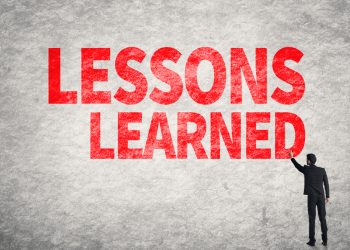–
If you are reading this then you might have more than a smidgen of interest in crisis planning surrounding the media – and you’re probably involved in shipping. Welcome!
You will know that it’s very important to keep each member of your team informed on how to effectively deal with the media when they call. We know that in tough freight rate times such as these, spending money on the media team by the company is probably a low priority.
We’re here to help.
A good employee will know that upon receiving a call from the media during an incident in which your ship may be involved they should be careful not to comment, and to pass it on to the incident team or spokesman.
But what about when they are sat in their car after work checking on their device for the latest Facebook posting or Twitter feed, and they see their company being roundly trashed by some instant expert?
Sometimes the red mist will descend and we all want to respond instantly with a short, sharp, pithy message putting the poster right, or perhaps, more dangerously, responding to an innocent looking question posed to the company.
We’re so used to receiving @mentions on Twitter today that that simple question may seem harmless – until it gets published, and extra damage control is then needed by the company.
It is this innocent judgement call by an individual member of staff that can cause the company some major headaches. Especially when the now renamed “interview” with your company begins to go viral and out of (your) control. See what just happened?
It’s therefore very important that each and every member of your team be trained on how to handle the press and the media in every sense.
Each and every employee is a PR representative and thereby a crisis manager for your company – whether you want them to be or not. Any word from any employee becomes the voice of the company in stressful times. It’s very important that every single member of your staff clearly understands certain parameters, before an incident strikes.
Have you established any guidelines for what can and can’t be allowed to be said during a crisis? This goes for both traditional and social media.
You’ll need to identify under what circumstances staff or crew are allowed to respond to enquiries and what types of questions they are permitted to answer – even when the enquiries come from a member of their own social network or inner family and friends circle. (I just checked my own Facebook list and have discovered four journalist friends who might pursue a story I might hint at..)
Do your staff easily know where they should refer such enquiries they might not be permitted to respond to? Should they be referred to a visible member of the communications team, or incident response team, or to a dedicated web page? Do they easily know who is looking after your digital media for the awkward squad questions?
And have you worked out what are the consequences might be for breaching these terms? Both for you, the charterer and the individual? HR might need to be involved….
Remember that any one of your employees may easily be approached by the press and/or the media in a crisis, and unless you want to do some additional damage control, it’s up to you to make sure that every single one of them understands what their particular role is within a crisis, as well as what is expected of them.
Mark Clark
Director of Navigate Response





























































